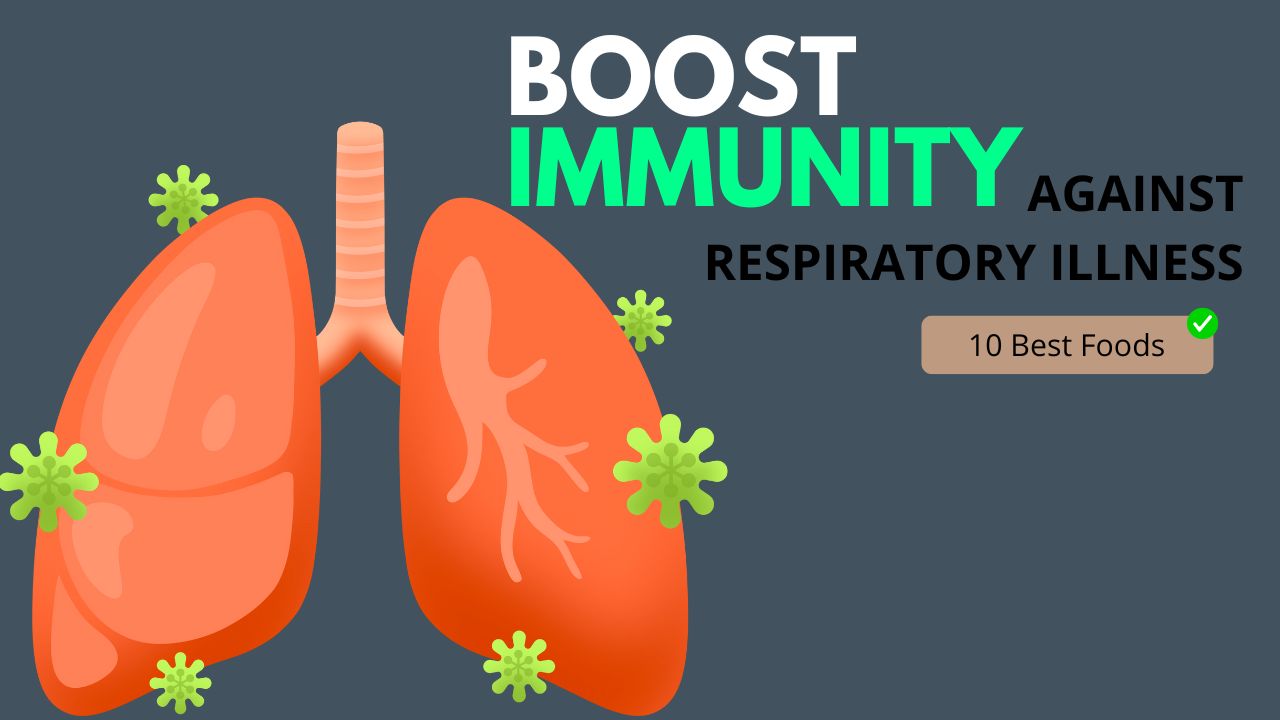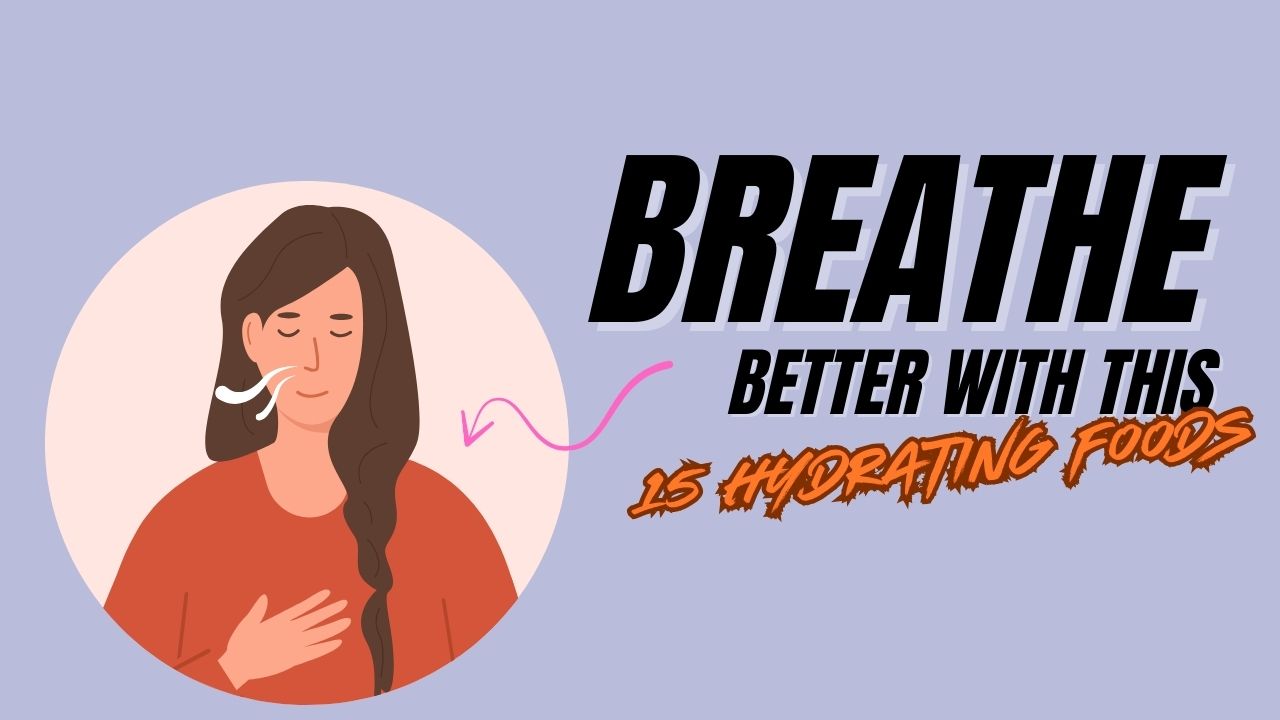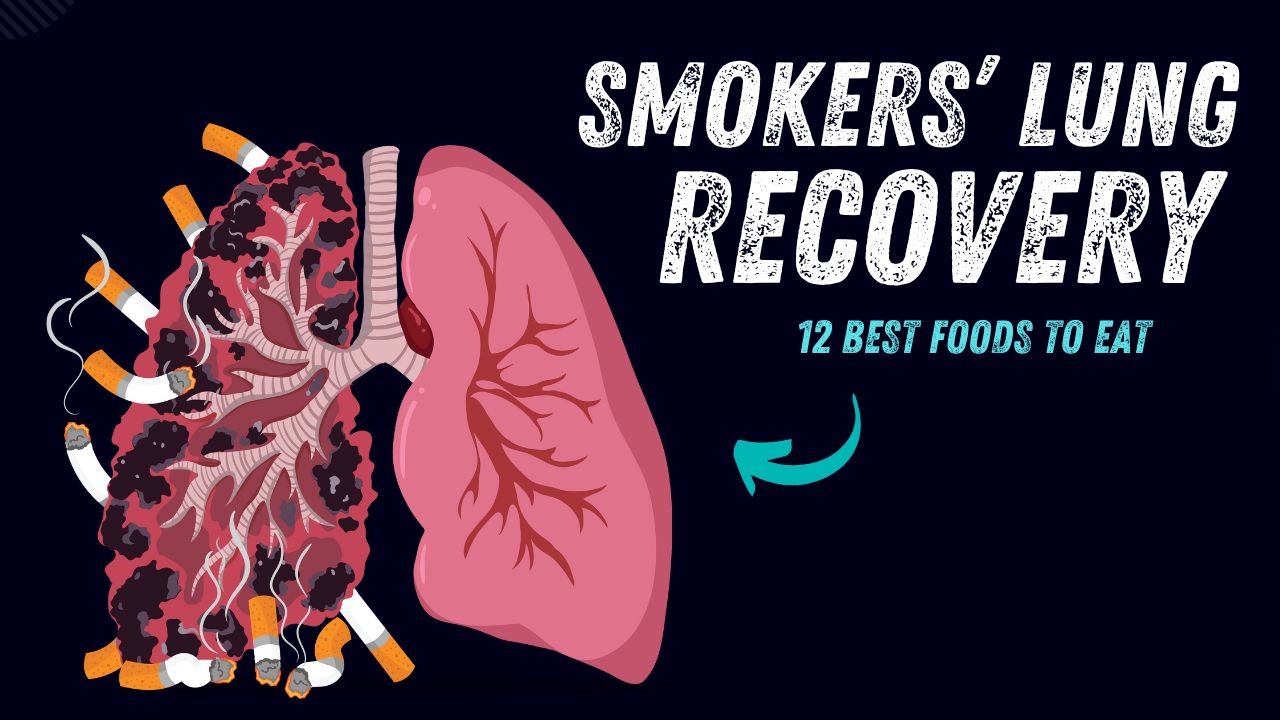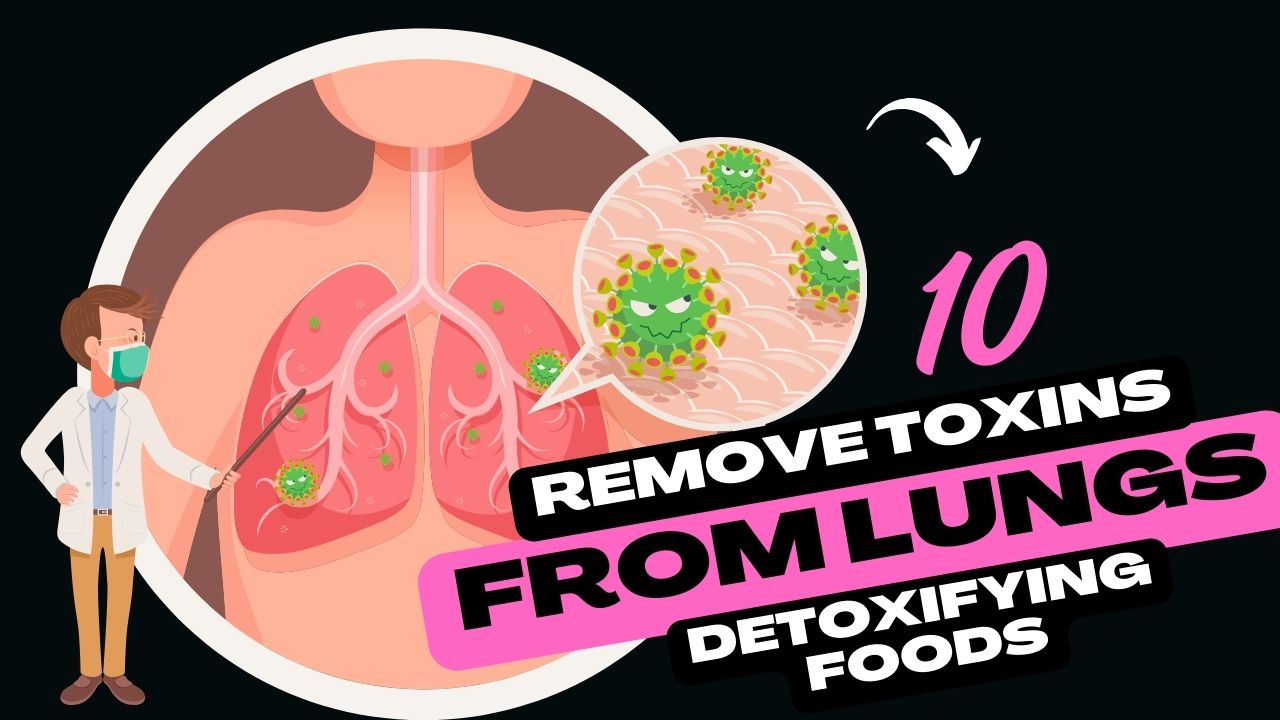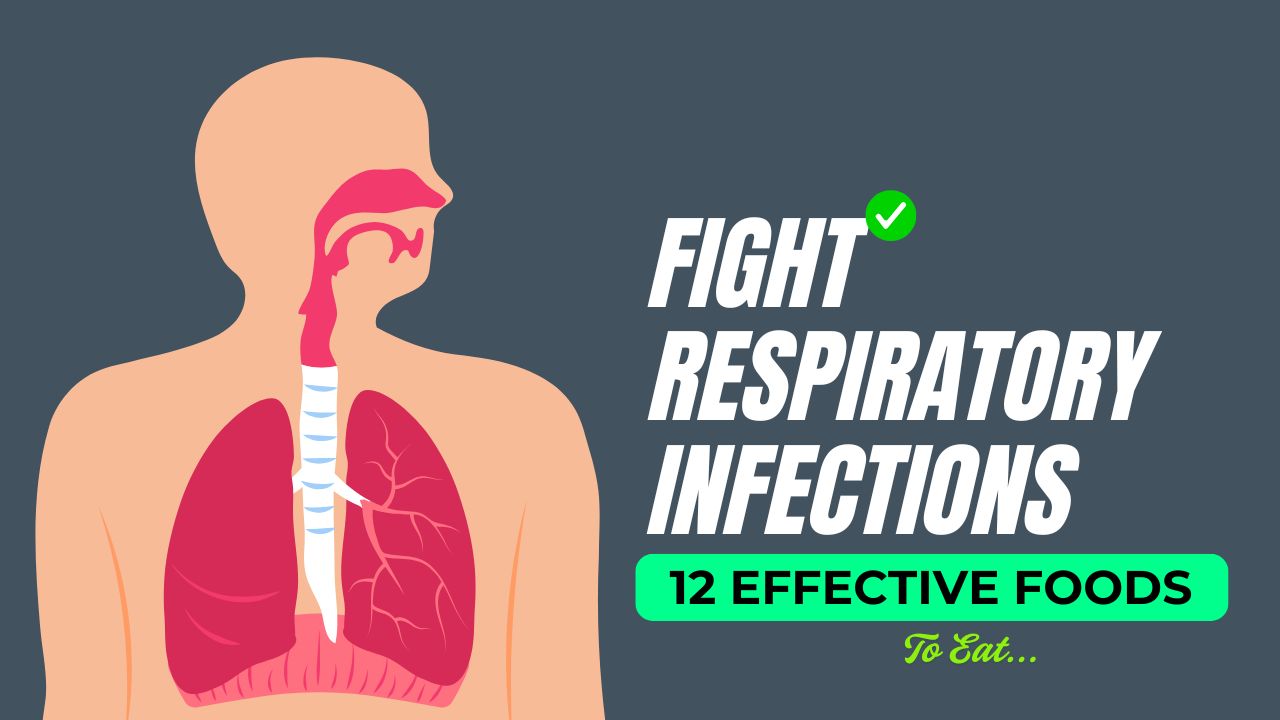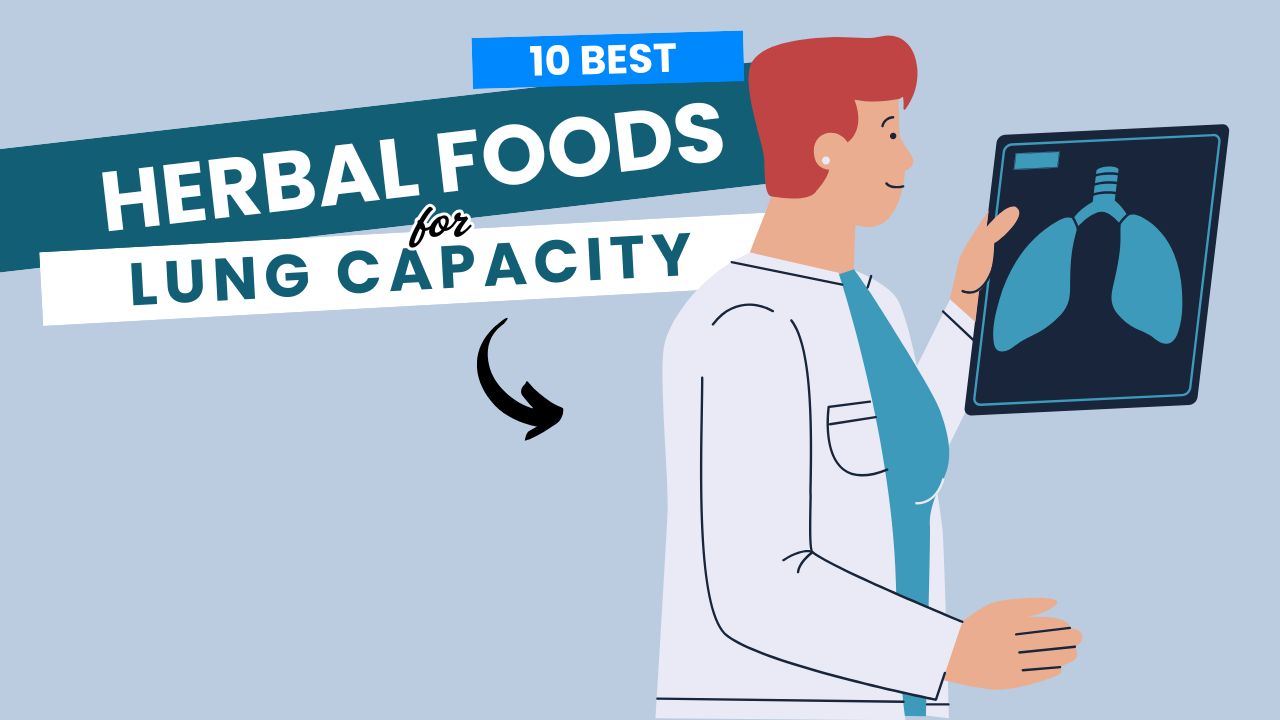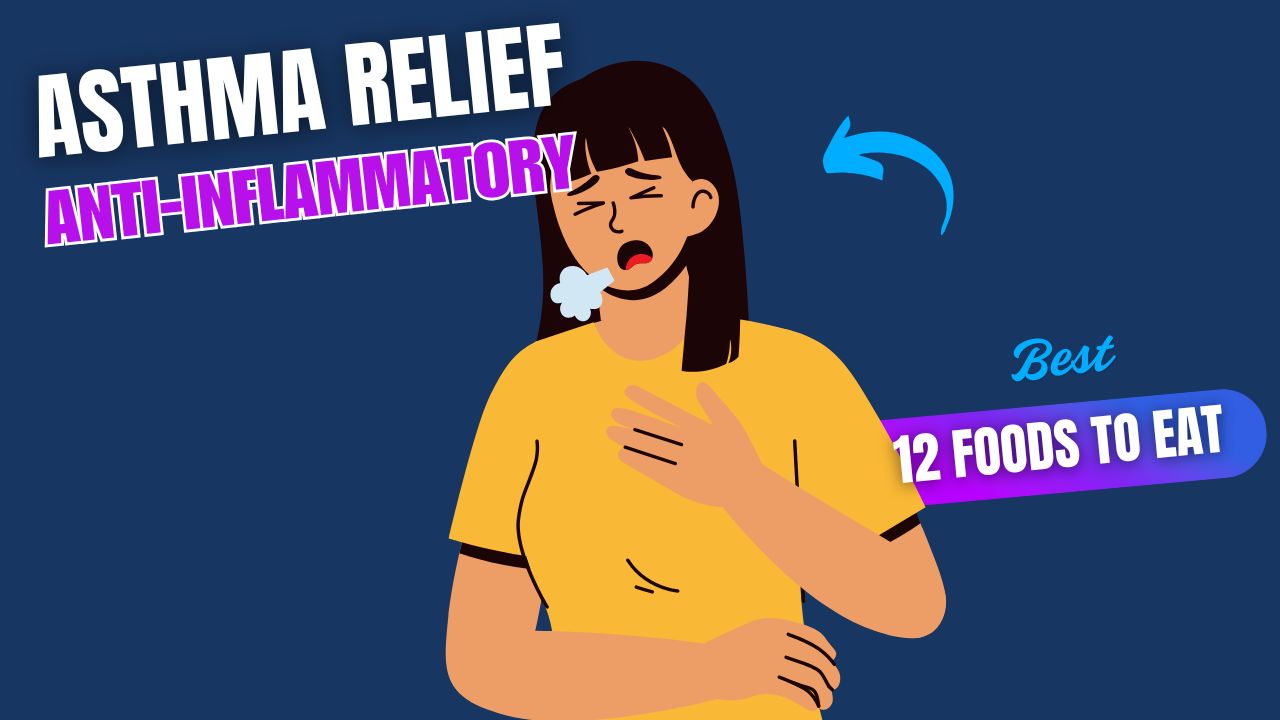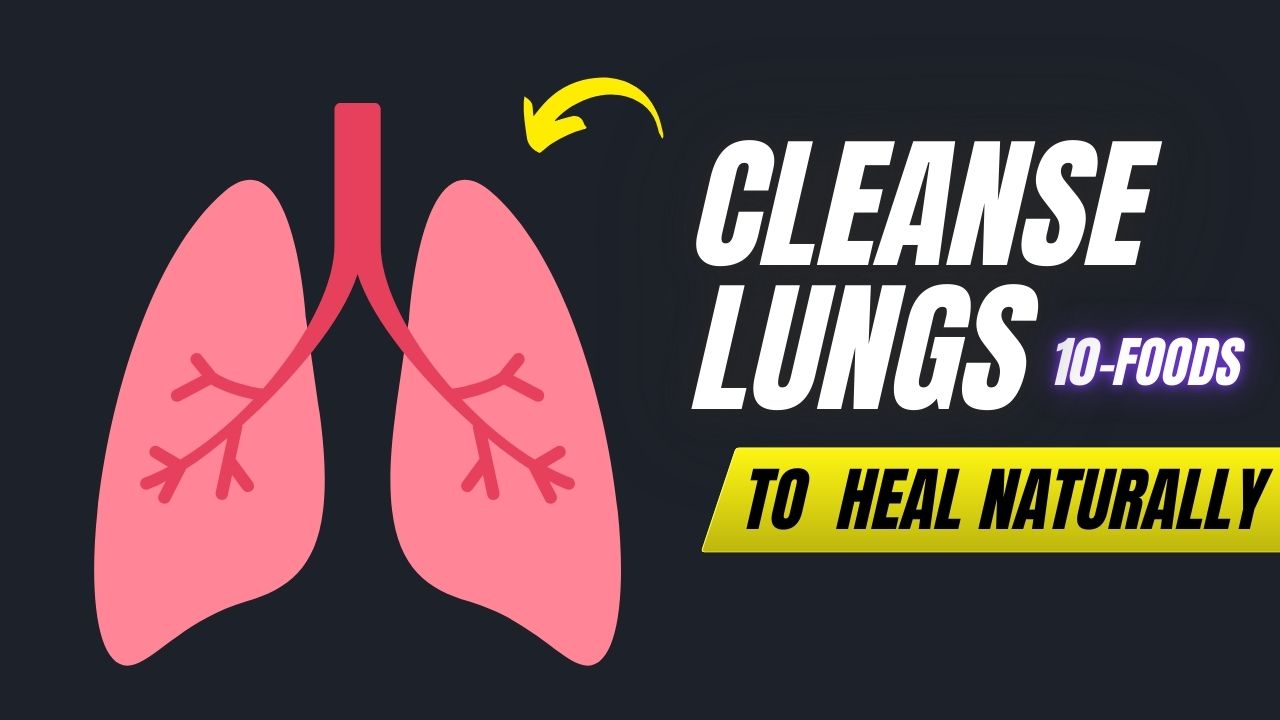Did you know that the average person takes more than 20,000 breaths every single day? With each breath, your lungs work tirelessly to filter oxygen and remove toxins.
Yet, factors like pollution, smoking, allergies, and even processed foods can weaken lung function over time. The good news? Nature has already provided powerful foods that can cleanse, protect, and even rejuvenate your lungs naturally.
Whether you want to support your respiratory health, improve oxygen intake during workouts, or simply breathe easier, including certain foods in your diet can make a remarkable difference.
In this post, you’ll discover 10 powerful foods that naturally cleanse the lungs—plus:
- The best ways to eat or use them.
- Who should include them (and who should avoid them).
- Storage and buying tips to keep nutrients intact.
- Do’s & Don’ts for getting the most out of these foods.
- Possible side effects to be mindful of.
Let’s dive in and learn how your kitchen can become your lung’s best friend.
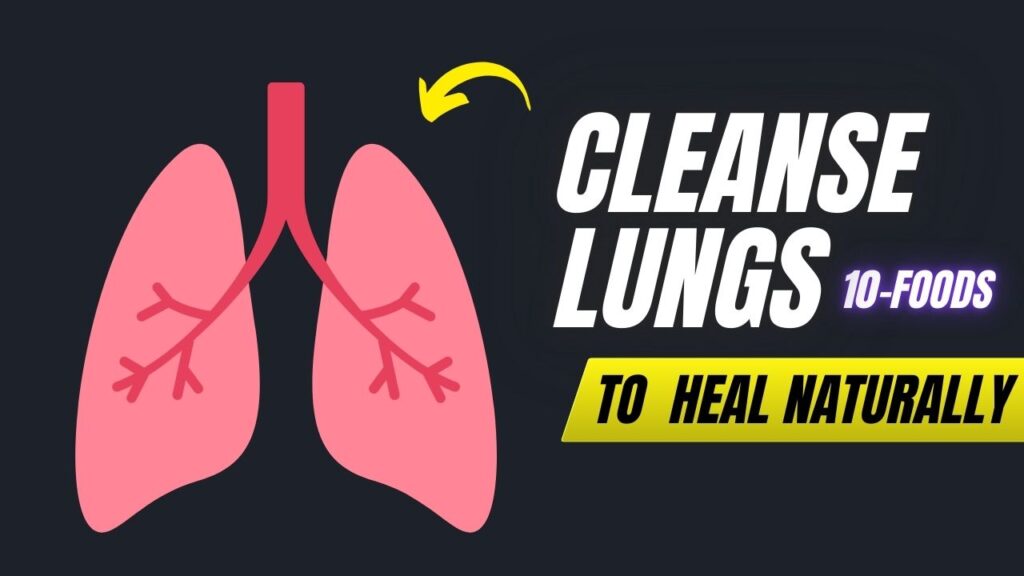
Table of Contents
Best Foods To Clean Lungs
1. Garlic
Garlic is more than just a flavor booster—it’s a natural antibiotic that helps fight infections and reduce lung inflammation. Rich in allicin, it supports the respiratory system and eases symptoms of asthma and bronchitis.
Best Ways to Eat or Use It
- Eat raw (1–2 cloves daily) for maximum allicin content.
- Add minced garlic to soups, stir-fries, or roasted vegetables.
- Infuse garlic in olive oil for a healthy drizzle.
Who Should Eat / Avoid
- Good for: People with asthma, frequent colds, or high blood pressure.
- Avoid/Limit if: You have stomach ulcers, digestive issues, or are on blood-thinning medication.
Storage & Buying Tips
- Choose firm, tight bulbs with no green sprouts.
- Store in a cool, dry place (not in the fridge).
- Use within 3–4 weeks for best potency.
Do’s & Don’ts
✅ Do: Crush garlic and let it sit for 5–10 minutes before cooking to activate allicin.
❌ Don’t: Overcook garlic—it destroys its beneficial compounds.
Possible Side Effects
- May cause bad breath, bloating, or heartburn in sensitive individuals.
2. Ginger
An ancient remedy, ginger reduces lung congestion and improves circulation, making it easier for the body to expel pollutants.
Best Ways to Eat or Use It
- Fresh ginger tea with lemon and honey.
- Add grated ginger to curries, stir-fries, and smoothies.
- Mix ginger powder in warm water for quick relief.
Who Should Eat / Avoid
- Good for: Smokers, those with respiratory infections, and athletes needing improved oxygen uptake.
- Avoid/Limit if: You have gallstones or are on blood-thinning medication.
Storage & Buying Tips
- Buy firm, wrinkle-free roots.
- Refrigerate in a paper bag to keep fresh for up to 3 weeks.
Do’s & Don’ts
✅ Do: Use fresh ginger over powdered for stronger benefits.
❌ Don’t: Consume more than 4 grams daily—it can thin the blood.
Possible Side Effects
- High amounts may cause stomach upset or interact with medications.
3. Turmeric
Turmeric contains curcumin, a powerful anti-inflammatory that protects lung tissues from damage caused by pollution and smoking.
Best Ways to Eat or Use It
- Golden milk (turmeric, milk, and black pepper).
- Add turmeric powder to soups, rice, and curries.
- Blend into smoothies with black pepper (enhances absorption).
Who Should Eat / Avoid
- Good for: People with asthma, chronic cough, or joint inflammation.
- Avoid/Limit if: You have gallbladder issues or are on blood-thinning medication.
Storage & Buying Tips
- Choose organic turmeric powder or fresh roots.
- Store in an airtight container away from sunlight.
Do’s & Don’ts
✅ Do: Pair turmeric with black pepper for 2000% better absorption.
❌ Don’t: Consume in excess—it may cause stomach irritation.
Possible Side Effects
- Large amounts may cause nausea or interact with medications.
4. Apples
“An apple a day keeps the doctor away”—especially when it comes to your lungs. Apples are high in antioxidants and vitamin C, which strengthen lung tissues and reduce risk of COPD (Chronic Obstructive Pulmonary Disease).
Best Ways to Eat or Use It
- Fresh whole apples (skin on).
- Add to salads, oatmeal, or smoothies.
- Bake for a healthy dessert.
Who Should Eat / Avoid
- Good for: Smokers, athletes, people with asthma.
- Avoid/Limit if: You have diabetes (choose low-GI varieties).
Storage & Buying Tips
- Pick firm, bruise-free apples.
- Store in the fridge to keep crisp for weeks.
Do’s & Don’ts
✅ Do: Eat the skin—it’s rich in antioxidants.
❌ Don’t: Peel unless necessary.
Possible Side Effects
- Excess consumption may cause bloating due to high fiber.
5. Green Tea
Green tea is packed with polyphenols and catechins, which reduce inflammation and flush toxins from the lungs.
Best Ways to Eat or Use It
- Brew hot green tea (avoid adding sugar).
- Use cold-brewed green tea as a refreshing drink.
- Blend into smoothies.
Who Should Eat / Avoid
- Good for: People exposed to pollution, fitness enthusiasts.
- Avoid/Limit if: You are sensitive to caffeine or have insomnia.
Storage & Buying Tips
- Buy loose-leaf tea or high-quality tea bags.
- Store in an airtight container away from moisture.
Do’s & Don’ts
✅ Do: Drink 2–3 cups daily.
❌ Don’t: Add too much sugar—it cancels the benefits.
Possible Side Effects
- Excess may cause insomnia, jitteriness, or stomach upset.
6. Leafy Greens (Spinach, Kale)
Leafy greens are rich in chlorophyll, which helps detoxify the lungs and boost oxygen absorption.
Best Ways to Eat or Use It
- Smoothies with spinach and fruits.
- Lightly sautéed or steamed greens.
- Add raw to salads and wraps.
Who Should Eat / Avoid
- Good for: Vegetarians, athletes, people with anemia.
- Avoid/Limit if: You have kidney stones (high in oxalates).
Storage & Buying Tips
- Choose dark green, crisp leaves.
- Store in the fridge in a breathable bag.
Do’s & Don’ts
✅ Do: Wash thoroughly before use.
❌ Don’t: Overcook—nutrients are lost.
Possible Side Effects
- May interfere with certain blood-thinning medications.
7. Citrus Fruits (Oranges, Lemons, Grapefruit)
Citrus fruits are loaded with vitamin C, which boosts lung immunity and prevents infections.
Best Ways to Eat or Use It
- Fresh juice or whole fruit.
- Add lemon to warm water in the morning.
- Zest peels into salads or teas.
Who Should Eat / Avoid
- Good for: People with weak immunity or frequent colds.
- Avoid/Limit if: You have acid reflux.
Storage & Buying Tips
- Pick firm fruits with bright skin.
- Store at room temperature or in the fridge.
Do’s & Don’ts
✅ Do: Eat whole fruit for fiber.
❌ Don’t: Rely only on packaged juices.
Possible Side Effects
- Excess may erode tooth enamel due to acidity.
8. Carrots
Carrots are high in beta-carotene, which the body converts into vitamin A—vital for healthy lung tissue.
Best Ways to Eat or Use It
- Snack on raw carrot sticks.
- Add to soups, stews, or stir-fries.
- Blend into smoothies or juices.
Who Should Eat / Avoid
- Good for: Children, athletes, people with weak vision.
- Avoid/Limit if: You have carotene sensitivity.
Storage & Buying Tips
- Pick firm, bright orange carrots.
- Store in a perforated bag in the fridge.
Do’s & Don’ts
✅ Do: Eat with healthy fats (olive oil) for better absorption.
❌ Don’t: Overcook—nutrients are lost.
Possible Side Effects
- Excess may cause skin to turn slightly orange (harmless).
9. Walnuts
Walnuts are rich in omega-3 fatty acids, which reduce lung inflammation and support respiratory health.
Best Ways to Eat or Use It
- Snack on a handful daily.
- Add to oatmeal, yogurt, or salads.
- Use walnut oil in dressings.
Who Should Eat / Avoid
- Good for: Heart patients, athletes, vegetarians.
- Avoid/Limit if: You have nut allergies.
Storage & Buying Tips
- Choose unsalted, raw walnuts.
- Store in airtight containers in the fridge.
Do’s & Don’ts
✅ Do: Eat in moderation (1 handful/day).
❌ Don’t: Buy roasted, salted varieties often—they lose nutrients.
Possible Side Effects
- High in calories; overeating may cause weight gain.
10. Pomegranate
Pomegranates improve blood circulation and help the lungs get more oxygen. Rich in antioxidants, they protect against cell damage.
Best Ways to Eat or Use It
- Fresh seeds as a snack.
- Add to salads, smoothies, or desserts.
- Drink fresh pomegranate juice (unsweetened).
Who Should Eat / Avoid
- Good for: People with low energy, athletes, heart patients.
- Avoid/Limit if: You’re on blood pressure medication (consult doctor).
Storage & Buying Tips
- Choose heavy fruits with shiny, unbroken skin.
- Store in a cool place or refrigerate.
Do’s & Don’ts
✅ Do: Eat seeds fresh for maximum benefits.
❌ Don’t: Depend on store-bought juices (often high in sugar).
Possible Side Effects
- May lower blood pressure excessively if combined with medication.
Conclusion
Your lungs are your body’s natural filters—constantly exposed to toxins, dust, and pollution. Supporting them with the right foods can help you breathe easier, fight infections, and even improve your energy levels.
From garlic’s infection-fighting power to the antioxidant punch of pomegranate, these 10 foods are simple yet powerful allies for your respiratory health.
Why not start today? Add a clove of garlic to your meal, sip a cup of green tea, or toss fresh spinach into your smoothie.
Your turn: Which of these lung-cleansing foods will you try first? Share your favorite recipe or preparation method in the comments!
Frequently Asked Questions (FAQs)
What foods are best for cleaning the lungs naturally?
Garlic, ginger, turmeric, apples, green tea, leafy greens, citrus fruits, carrots, walnuts, and pomegranate are some of the best foods that support lung detox and overall respiratory health.
Can diet really improve lung function?
Yes. While food alone cannot cure chronic lung diseases, a nutrient-rich diet with antioxidants, vitamins, and anti-inflammatory compounds can help reduce inflammation, clear mucus, improve oxygen absorption, and strengthen lung tissues.
How long does it take for these foods to show benefits?
It varies from person to person. Some may feel lighter breathing within a few weeks, while long-term improvements—like stronger immunity and reduced infections—come from consistent dietary habits over months or years.
Are there any foods that are harmful to lung health?
Yes. Processed foods, deep-fried items, sugary drinks, and foods high in trans fats or refined carbs can worsen lung inflammation and make breathing more difficult.
Can smokers benefit from eating lung-cleansing foods?
Absolutely. Smokers are more prone to lung damage and oxidative stress. Including lung-friendly foods like apples, green tea, garlic, and leafy greens can help reduce some of the damage and improve overall respiratory health.
Do these foods replace medical treatment for lung diseases?
No. These foods support lung health but cannot replace prescribed medications or treatments. Always consult a healthcare professional if you have conditions like asthma, COPD, or chronic bronchitis.
Are supplements as effective as natural foods for lung health?
Whole foods are generally more effective because they provide a wide range of nutrients and antioxidants that work together. Supplements may help if you have specific deficiencies, but they should not replace a balanced diet.
Can children eat these lung-cleansing foods?
Yes, most of them are safe and beneficial for children, especially fruits, vegetables, and nuts (if no allergies). Always adjust portion sizes according to age and dietary needs.
How much water should I drink for healthy lungs?
Adequate hydration (around 7–8 glasses daily for most adults) helps thin mucus in the lungs, making it easier to expel and improving overall lung function.
